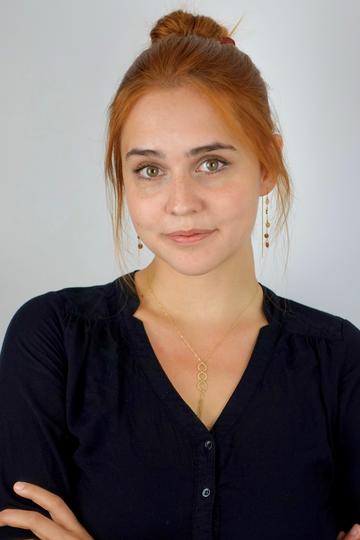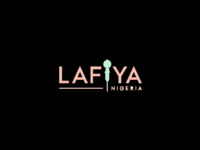Klau Chmielowska, co-founder and co-executive director of Lafiya Nigeria

Klau Chmielowska is the co-founder and co-executive director of Lafiya Nigeria. Lafiya Nigeria is a global health non-profit organisation with the mission of providing access to contraception to end maternal mortality. The organisation is based in Nigeria, a country with high maternal mortality and a significant unmet need for family planning. Lafiya Nigeria ensures that women living in extreme poverty and hard-to-reach areas can exercise agency over their bodies and lives.
I grew up accustomed to the casual deprivation of opportunity around me: my classmates dropping out due to unplanned teenage pregnancies, crime, and addictions. From a young age, I learned I had to fight hard against the backdrop of this predetermined future: first by gaining a full-ride academic scholarship to a UK high school as one of the top 15 students countrywide, then by being admitted to Oxford to study Philosophy, Politics, and Economics. Along this journey, I saw how a great education opened my doors. I wanted to help others have the same opportunity so I became a development consultant for the Nigerian government while studying at Oxford. During this project, I saw that the lack of access to contraceptive options not only created a structural barrier for women to achieve education but also posed a direct risk to their lives. When I learned that every 2 minutes, a woman dies from birth complications, I understood that real global change is impossible before addressing those fundamental barriers. This spelt out my mission forward: to work in marginalised communities so that they can reclaim their agency. This is why I founded Lafiya Nigeria, a global health non-profit focused on last-mile distribution of contraception. I now work tirelessly to bring about the first and most fundamental step to the agency for every woman by fighting for their reproductive rights. I want to ensure that everyone has a chance for a better future.

Entrepreneurship is about uniting diverse talents and resources under a common mission in order to catalyse positive change. By connecting people and assets around a shared vision, entrepreneurs can tap into powerful synergies to make a meaningful impact on the world.
The first sign that I knew I was onto something happened when people whom I respect deeply were excited by my idea and offered to invest their own time to move the project off from the ground. Those incredibly knowledgeable people, Jefferson Chen, Dr Fatima Adamu, and Nasiru Fakai, saw the potential of this idea and agreed to become the co-founders of Lafiya.
The second sign was securing backing from an organization like D-Prize, known for rigorously vetting social impact concepts. Receiving this award gave me tremendous validation early on. Once I had these votes of confidence, I felt empowered to hit the ground running to execute an idea I genuinely believed could drive change.
I would say the top three skills are passion, self-discipline, and resilience.
First, you must be passionate about the things you do. It takes a lot of time and effort to make anything happen. If you don’t find it interesting, it would be hard to wake up every day, get to work, and go through difficult times.
The second thing is self-discipline. It’s so easy to give up when things get difficult, and things will definitely get difficult at some point. But if you put in hard work, continue to show up every day, and give your all, you’ll see some progress. You’ll either see positive changes happening, or you’ll see failures, which are opportunities for you to learn and improve your skills.
The third thing is resilience, in particular the resilience to rejections. Before you succeed, you’ll hear a lot of people saying many reasons why your project may fail. It is easier to persevere if you have good reasons to believe that what you’re doing makes sense.
One thing I like about entrepreneurship is that it allows me to take action to improve what I don’t think is right in the world. It’s really empowering to be able to see the change you make and to have the agency to improve things. Now I see that my hard work and ambitions are contributing to small incremental change that I hope one day sparks a movement that will inspire our generation, who is currently tired of the existing status quo. Every day I turn caring into doing, and I’m so grateful that I’m in a position to do so.
There have been so many inspiring people along the way – my co-founders whom I have mentioned at the beginning of the interview Jefferson Chen and Celine Kamsteeg, inspiring individuals from Charity Entrepreneurship such as Joey Savoie and Karolina Sarek. But the people who inspire me the most and whom I keep in mind every day are those I’ve had the privilege to serve in Nigeria. These are rural women who on average have seven children. They find the courage and passion to work so tirelessly both for themselves and for their children, all while facing so many systematic obstacles in creating a better life for themselves, their families, and their communities.
I wouldn’t just spend 5 minutes with them, but rather I currently and constantly devote my time to understanding their lived experiences so we know how to better serve them. I’ve had the privilege and honour to go for many field visits to meet these women in person and learn from them.
I love to hear about their experiences, what drives them to make changes, and what gives them the energy to fight an unfair battle against systematic obstacles such as education, patriarchy, limited access to health services, and limited income opportunities. It is really powerful to see them not only fighting for everyday life but also having all the energy and passion to do better. So, I try to understand how their experience shapes their way of interaction with the community, and what plans they have for themselves.
There have been so many. One that I remember very distinctly is when we started our project. So perhaps let me take a step back and explain a bit more about our model. We recruit female health workers – we refer to them as Lafiya Sisters – in Nigeria (nurses and midwives) and train them in family planning before they serve their communities. We also provide them with contraception free of charge. So, I remember when we first started our pilot, the training session and entire process felt daunting. It was not only difficult logistically to organise all the Lafiya Sisters’ arrivals from remote communities but it was also made harder as we had to keep in mind lots of security risks and a host of other challenges.
But then the moment came when I saw our client survey began to be populated with a first name. Then one turned into more and more; these were real women we reached with contraception and counselling that they needed. Now those first two or three names have become 20,000. To see their names, and to hear their stories, makes me see and understand how all the hard work that myself and my team have done over the months is paying off, and is making a real change to the lives of all these individuals. This is probably what motivates me the most and the biggest success I feel.
I think the biggest lesson learned was ensuring that people knew about what I was doing. When I started building this venture, I worked very hard for the first year without sharing the behind-the-scenes with others. I think I was taught at home that my results should speak for myself and that I don’t need to distract myself with creating publicity.
However, this meant that by the time we shared our promising early result, we had already missed opportunities for more people to contribute expertise and resources from day one. I learned that early-stage transparency, even when ideas are still developing and you’re still figuring things out, is key for mobilizing the maximum support. Ongoing openness helps accelerate progress through collective wisdom.
Our funding mainly comes from grants from impact-driven individuals and organizations. For example, D-Prize, and also the Charity Entrepreneurship which we had the privilege to go through their incubator programme this summer. We also had some generous donors who supported us along the way. I think the difficulty with non-profit funding is that you have to find people who believe that you can make a real-world impact, and have goodwill to make the world better because here the return is not in revenue but rather in the impact you create.
If you are not sure whether entrepreneurship is something for you, don’t get scared by complicated financial terms, tough competition or any limiting beliefs. Start working on smaller projects and taking initiative and build your confidence and skills as you go. You don’t need anyone to give you permission to be a successful entrepreneur, you just need to try.
I identify as a non-binary person so I cannot truthfully answer this question. If it comes to the challenges I faced, I think the biggest one is my self-perception and the imposter syndrome associated with it. However, I would like to stray from this question slightly, because I feel like it creates a culture for women to think of their journey as being more challenging than their counterparts, which is true, but I think this discourages the optimism necessary to pursue this career path. I want to ensure that the readers of this interview will feel inspired to try something rather than walking away with more reasons to tell themselves that it’s not the right time.
I think the best resources are other entrepreneurs. So, I would advise that you put yourself in an environment of very driven people who make a positive impact, and use this opportunity to see how they think. You’ll learn a lot more from their experiences than any books can provide.
Oxford, for example, has such a dynamic scene of new projects and innovations. The first step is probably to find people who are doing the things you would like to do, and reach out to them. You’d be surprised by how open people can be to have meaningful conversations about their own journey. If you’re looking for a more practical start, I would definitely recommend checking out The Bloom by my friend Jasmine Anouna, which catalogues impact opportunities. I believe she was also featured on this podcast.



